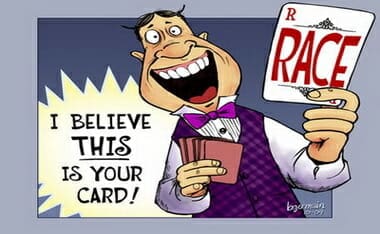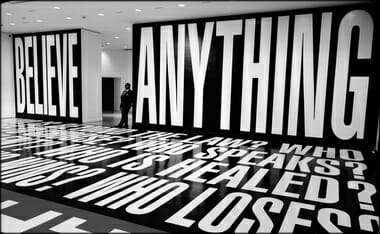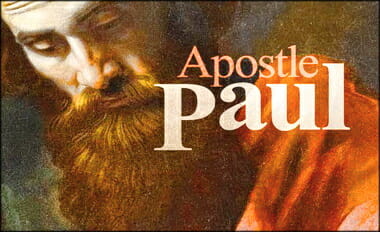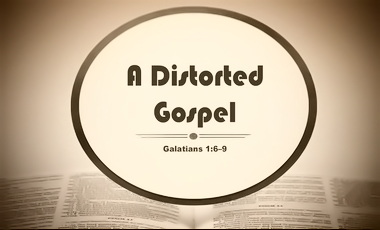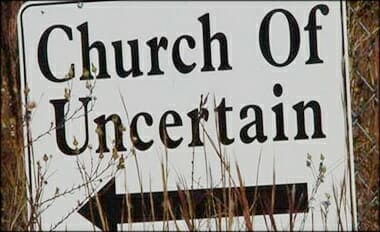The above graphic – which I will end with, along with a graphic by Shane Claiborn, and another by N.T. Wright discussing Christian Nationalism,* I unfriended a person who, since Trump has maligned a large swath of Bible believing brothers and sisters as white nationalists, who, in wanting to control the border well — THUS, offering the most compassion to people from other countries — as racists.
* SEE MY: Christian Nationalism? Conflating neo-Paganism with Christianity
SHANE CLAIBORNE
I have previously written on Shane’s close ties to radical Marxist organizations and radically left “Christian” institutions. But this will be a good refresher course in the failure of Shane’s views.
For instance, after showing a clip, a short clip, of Trump discussing immigration, Shane Claiborne said this:
I am troubled by Trump.
But I’m even more troubled by the Christians who support him.
This is white supremacy… full stop.
Trump is an opportunist… exploiting the fears and insecurities of white people. He stokes the deepest fears of scarcity, of being replaced, of losing power. And he unleashes Americas worst principalities and powers. This is racism on full display.
But the Gospel of Jesus is about love and compassion. It’s about the promise that perfect love casteth out fear. The Gospel is about advocating for widows and orphans and having compassion for those Christ called “the least of these.”
In fact, Jesus even says that when we welcome the stranger – the immigrant, the refugee, the homeless — we are welcoming HIM.
Follow Jesus. Not Trump.
Who follows Trump like they follow Jesus.
This is a repeated nonsensical line I hear repeated by #NeverTrumpers.
SMH… it is this over-generalized statement[s] that gets under my skin.
Dennis Prager notes that when he make a generalization, he will give an example to go along with it.
Why?
So a person can deal with the argument.
But saying someone is a white nationalist or lives his life today normalizing the “seven deadly sins” is just a broad, insurmountable statements used a broad brush to merely reject opposition rather than engage it.
Trump is not a pastor of a church movement that advocates Marxism and Liberation Theology, like Shane.
Here is an excellent gathering of some of his issues as it relates to me and my family – other than being white nationalists:
This is what Shane Claiborne had to say about revered Lutheran pastor Dietrich Bonhoeffer’s attempt to assassinate Adolf Hitler:
“I think even Bonhoeffer was wrong. There’s an interview with Hitler’s secretary in a movie called Blind Spot, and she tells about when the assassination attempt failed, and Hitler was very interestingly protected from the bomb, he was convinced at that point, more than ever before, that God was protecting him and his mission, and he went forward with renewed vigilence like ever before. So I would say on the day that Bonhoeffer did that, the cross lost, and that violence just perpetuated.”
[SEE HERE FOR MORE] Mark Tooley in the Weekly Standard writes:
“Shane Claiborne is a Christian counter-culturalist and pacifist who went to Baghdad in 2003 to express solidarity with Iraq when the first U.S. and Allied missiles landed.”
“CBS News asked him whether he was a traitor:
If this bloody, counterfeit liberation is American .??.??. I am proud to be un-American. If depleted uranium is American .??.??. I am proud to be un-American. If the imposed ‘peace’ of Pax Americana is American, I am proud to be un-American.”
“In Jesus for President Claiborne wants Christians to disavow their country and all civil governance in favor of exclusive allegiance to a nonviolent Jesus whose chief mission is resisting ‘empire.’ But Claiborne’s interpretation of Jesus, his few selective quotations from early church fathers notwithstanding, is largely divorced from the universal church’s understanding of the Savior. Instead, Claiborne insists on a narrowly reinterpreted Jesus as distilled by Yoder and several others in 20th-century America for whom Jesus is more social critic than Resurrected Redeemer.”
Barton Gingerich of the Institute on Religion & Democracy writes:
“Claiborne often touts radical political themes. His 2008 book Jesus for President likened American to the Third Reich and the biblical Whore of Babylon . . . Claiborne has also praised Occupy Wall Street and recently called for an ‘excorcism’ of Wall Street.”
[….]
“Shane Claiborne. . . warned on July 4 that ‘patriotism can be a dangerous thing if it leads to amnesia about the dark patches of our nation’s history.’ He proposed that instead of Independence Day, Americans celebrate ‘Interdependence Day,’ to recognize that ‘we are part of a global neighborhood.’”
In an Interview with Tony Campolo, Shane Claiborne said, “One of the barriers [between religions] seems to be the assumption that we have the truth and folks who experience things differently will all go to Hell. How do we unashamedly maintain a healthy desire for others to experience the love of God as we have experienced it without condemning others who experience God differently?”
Here is another quote by Claiborne, “When we truly discover how to love our neighbor as our self, Capitalism will not be possible and Marxism will not be necessary.” (see here)
Author Dave Hunt sums up Shane Claiborne’s teaching this way, “Some of Claiborne’s agenda toward the poor is commendable and may be well suited to social welfare programs such as the Peace Corps or UNESCO, but it does a terrible disservice to the biblical gospel. ‘Biblical’ needs to be underscored here because the gospel has specific content that can only be derived from the Bible. The gospel is what the Bible is all about. It is God’s way of salvation. . .Since the gospel has an eternal objective (e.g., it is a person’s only means for spending eternity with God), there is nothing of temporal significance that should be given priority over it. …
I am a huge fan of a Chinese Christian who started life as a committed philosopher of Buddhism, saw his coutry heading towards a cliff, was eventually forced to relocate under Mao, became a Christian and wrote veraciously about the Christian worldview and theology. Very few books are translated from Chinese to English. But in a missions class at seminary taught by Dr. Ray D. Arnold, who was one of the 1,000 missionaries that General MacArthur called to go to Japan at the conclusion of WWII. One blog notes this about the endeavor:
- Perhaps General MacArthur didn’t succeed in bringing Christianity to Japan in the institutional sense. But he did bring mercy, forgiveness and respect for human dignity–the heart of Christianity–and these the Japanese graciously accepted.
… taught by Dr. Ray D. Arnold, he introduced me to this prolific author and professor with a booklet he quoted from in class (I will emphasize the portion he used as a quote):
As Dr. Carl F. H. Henry pointed out: “The Chicago evangelicals, while seeking to overcome the polarization of concern in terms of personal evangelism or social ethics, also transcended the neoProtestant nullification of the Great Commission.” “The Chicago Declaration did not leap from a vision of social utopia to legislation specifics, but concentrated first on biblical priorities for social change.” “The Chicago evangelicals did not ignore transcendent aspects of God’s Kingdom, nor did they turn the recognition of these elements into a rationalization of a theology of revolutionary violence or of pacifistic neutrality in the face of blatant militarist aggression.” (Cf. Dr. Carl F. H. Henry, “Evangelical Social Concern” Christianity Today, March 1, 1974.) The evangelical social concern is transcendental not merely horizontal.
We must make it clear that the true revolutionaries are different from the frauds who “deal only with surface phenomena. They seek to remove a deep-seated tumor from society by applying a plaster to the surface. The world’s deepest need today is not something that merely dulls the pain, but something that goes deep in order to change the basic unity of society, man himself. Only when men individually have experienced a change and reorientation, can society be redirected in the way it should go. This we cannot accomplish by either violence or legislation” (cf. Reid: op. cit.). Social actions, without a vertical and transcendental relation with God only create horizontal anxieties and perplexities!
Furthermore, the social activists are in fact ignorant of the social issues, they are not experts in the social sciences. They simply demand an immediate change or destruction of the social structures, but provide no blueprint of the new society whatsoever! They can be likened to the fool, as a Chinese story tells, who tried to help the plant grow faster by pulling it higher. Of course such “action” only caused the plant to wither and die. This is exactly what the social radicals are doing now! And the W.C.C. is supporting such a tragic course!
We must challenge them [secular social activists] to discern the difference between the true repentance and “social repentance.” The Bible says: “For the godly grief produces a repentance that leads to salvation and brings no regret; but worldly grief produces death” (II Cor. 7:10). This was the bitter experiences of many former Russian Marxists, who, after their conversion to Christ came to understand that they had only a sort of “social repentance”—a sense of guilt before the peasant and the proletariat, but not before God. They admitted that “A Russian (Marxist) intellectual as an individual is often a mild and loving creature, but his creed (Marxism) constrains him to hate” (cf. Nicolas Zernov: The Russian Religious Renaissance). “As it is written, there is none righteous, no, not one…. For all have sinned and come short of the glory of God” (Rom. 3:10,23). A complete change of a society must come from man himself, for basically man is at enmity with God. All humanistic social, economic and political systems are but “cut flowers,” as Dr. Trueblood put it, even the best are only dim reflections of the Glory of the Kingdom of God. As Benjamin Franklin in his famous address to the Constitutional Convention, said, “Without His concurring aid, we shall succeed in this political building no better than the builders of Babel.” Without reconciliation with God, there is no reconciliation with man. Social action is not evangelism; political liberation is not salvation. While we shall by all means have deep concern on social issues; nevertheless, social activism shall never be a substitution for the Gospel.
Lit-sen Chang, The True Gospel vs. Social Activism, (booklet. Presbyterian and Reformed Publishing Co: 1976), 9.
But publications like this: “Lit-sen Chang (1904–1996) and the Critique of Indigenous Theology,” would be anathema to Shane and clan. The success, by the way, of the Evangelical Church in China today is in part to the hard work of Lit-sen Chang. The Chinese underground church would be in awe of Shane’s douchery in playing with Marxist fire and labeling it ecumenism.
DAVID FRENCH
Another person who is lauded by this recent unfriended friend is David French. He seems to link and recommend French a lot even though French believes I am a racist rube as well. So let us begin with a change from French as an “Evangelical who supports Mitt Romney” to maligning evangelicals in an atheists documentary.
Kylee Griswold via THE FEDERALIST hits this one out of the park for us:
… Long before French became a willing participant in atheist Rob Reiner’s anti-Trump “documentary” “God & Country” earlier this year, he was invoking white guilt to toss a cohort of Christians who vote differently than he does into the “Christian nationalism” basket. Evangelicals (specifically white ones) who were hesitant about getting the rushed and mandated Covid jab were actually “reluctant to consider the health of their community” and had a “spiritual problem.”
Less than two weeks after radical pro-abortion and pro-transgender candidate Joe Biden became the presumptive Democrat nominee in 2020, French said those who favored Trump were of low character and competence — even though, as Nathaniel Blake wrote in these pages, French was previously “behind ‘Evangelicals for Mitt’ and spent years arguing that our political leaders need not be avatars for our beliefs.”
Then there’s French’s evolution on so-called “gay marriage” in federal law. He says his views on traditional, biblical marriage have not changed. But during the fight over the misnamed Respect for Marriage Act — which requires every state and the federal government to recognize homosexual “marriages” and was signed into law by French-endorsed President Biden — French claimed:
Religious belief is not the same thing as declaring civil law. … I don’t want the law to discriminate against those Americans who sincerely hold different views of sexual morality, sexuality, and marriage and organize their lives and their institutions accordingly.
As Megan Basham wrote in The Federalist at the time, “In other words, he makes the same argument about marriage that Catholics Joe Biden and Nancy Pelosi have about abortion — he has personal views based on his faith but does not want those views, however endorsed they may be by the Creator of the universe, to be reflected in U.S. statute.”
He didn’t stop there, though. French thinks now that the institution has been legally desecrated, it should stay that way forever: “It would be profoundly disruptive and unjust to rip out the legal superstructure around which [gay Americans] ordered their lives.”
While David French was a senior editor of The Dispatch, the NeverTrump publication performed a dishonest “independent fact-check” of pre-2020 election advertisements from the pro-life group Susan B. Anthony List, which exposed Biden and Kamala Harris’ support for abortion until birth. Facebook then used that fake fact-check to censor the pro-life ads.
There’s plenty more where that came from. From launching character assassinations, to going after the weak, to defending the taxpayer-funded indoctrination of children with divisive racial politics, and more — the David “Winsome” French well never runs dry.
But the Pharisaical metanarrative is a familiar one: a self-righteous religious leader who sets his own rules, measures his opponents by them, morphs those rules when it suits him, and then boisterously gives thanks that he’s not like the unpalatable white Trump voters over there.
French is not so much a regime handmaiden as he is a court eunuch who became so by choice and nonetheless thinks he is in a position to lecture others on masculinity. He’s a turncoat who scolds others about loyalty, a liar convinced he’s the last honest man on Earth, and a party apparatchik whose vaunted principles always seem to align with his paychecks.
In recent years, he’s made a name for himself using Sunday — the traditional Christian day of rest and worship — to smear the faithful for the unpardonable sin of believing God’s law is superior to man’s law. ….
After Kylee wrote the above article… David French responded. In character of course.
Dissecting French’s Latest Delusion
French doesn’t name me in his self-obsessed screed, but I’m clearly the subject of his ire. The “professional polarizer” links to my article on the subject twice, once calling it “misleading” but without naming anything I got wrong — probably because he can’t. Every nasty thing he’s ever written about white evangelicals is public.
In his latest installment, French recaps how “apolitical” the PCA was when he and his wife joined it in 2004 through 2007 when he deployed (he can’t help himself). Then everything changed. This is the crux of his piece:
Two things happened that changed our lives, however, and in hindsight they’re related. First, in 2010, we adopted a 2-year-old girl from Ethiopia. Second, in 2015, Donald Trump announced his presidential campaign.
In other words, the religious and political landscape changed when “Trump’s rise” drew racists out of the evangelical woodwork, and principled David French, who just so happened to detest Donald Trump and made his living demonizing Trump’s supporters, couldn’t abide it.
This is absurd.
First, it’s either intellectually dishonest or completely delusional to ignore the actual catalyst that changed American politics during the period French identifies — and, in fact, birthed the Trump years. And no, it’s not the French family’s skin color nor sleeper racists inside the church who were just waiting for a “Celebrity Apprentice” president to make their move.
It was the Barack Obama years — a Rubicon-crossing era masked by smooth rhetoric, disdain for marriage, promotion of on-demand abortion, attacks on Christian consciences, the targeting of conservative political groups and their donors, the demonization of firearms, illegal power grabs to advance unlawful immigration, the introduction of campus kangaroo courts, the regular embrace of racism and antisemitism, and much, much more.
Besides Obama’s slick celebration of immorality and gaslighting of anyone who “bitterly clung” to social norms and biblical tradition, there was no going back after his egregious weaponization of the federal government against his political opponents, including secret spying on Republicans. Trump was the equal and opposite reaction to all of that, no matter what French says.
[….]
Now, lest French or anyone else accuse me of racism, it should go without saying that any attacks on a person’s Imago Dei child, including those based on skin color or heritage, are despicable. It’s wrong for trolls to exploit children and deploy threats, whether via direct message or in person.
But French is insane if he thinks he’s the subject of unique threats, that these threats originate from the church, or that they’re a defining characteristic of Trumpers. For just one example, look at who attacked another white mother of a black adopted child, Trump-nominated Supreme Court Justice Amy Coney Barrett.
Most people don’t feel the need to compulsively victimize themselves as French does, but since he went there, I guess I’ll bite: I don’t have half David French’s platform, but my life has still been threatened by left-wing nutjobs, something nearly all my colleagues can say as well. Threats and hate mail are an occupational hazard of public figures.
Additionally, I receive assaults on my faith, vulgar comments on my posts, and trolling of unsuspecting family and friends. And of course, some confrontations happen in real life or from people you know personally. It’s ridiculous, however, to view political and religious metanarratives through the lens of a few cynical anecdotes or DMs — especially when most people don’t live and breathe your Twitter feed, as French knows.
After earlier writing, “When I deployed to Iraq in 2007, the entire church rallied to support my family and to support the men I served with,” French writes this near the end of his piece:
I do not want to paint with too broad a brush. Our pastors and close friends continued to stand with us. Our church disciplined the man who confronted me about Trump during communion. And most church members didn’t follow politics closely and had no idea about any of the attacks we faced.
You don’t say. You mean more people offered support when you publicly deployed than when you privately received nasty social media messages and one-on-one attacks? Does this guy have an editor?
Pure Projection
It’s even clearer now than when French’s PCA panel was announced that my diagnosis was correct. French is a turncoat and a party apparatchik whose alleged principles seem to line up perfectly with his paychecks.
It’s not my job to judge the authenticity of French’s faith. But when, of the PCA’s General Assemby, he says he’s “now deemed too divisive to speak to a gathering of Christians who share [his] faith,” I wonder whether he means those nonwhite, enlightened parishioners who share his hatred for Trump or the untouchables he thinks are neo-Confederates.
“If you dissent [from particular pro-Trump arguments], yeah, there will be people in the church who still love you and support you and respect you, but there will be people who come after you,” French told Mika Brzezinski and race-baiter Al Sharpton on MSNBC Monday morning.
Never forget he went after them first.
David French & the Vapors of Civic Virtue Escaping from a Mystery Box | Doug Wilson
Now I would have some things to say to those who went into the Capitol that day. First, I do believe that their resistance on J6 was not in accordance with the Word of God. That’s not how you do it. This was not Protestant resistance theology, but more like Keystone Kops resistance theory. And related, in the second place, as Tallyrand so elegantly put it one time, it was worse than a crime—it was a blunder.
Wintery Knight has some articles as well worth your attention. Here are some issues I wish to highlight from his excellent coverage.
Secular Left Funding New David French / Russell Moore Church Curriculum
… This time, she [Megan Basham TWIX | DAILY WIRE] takes on 2 of the people who try to present themselves as Christians, even as they are doing everything they can to destroy Christianity in America: David French and Russell Moore.
Here’s her latest report in First Things:
Secular news outlets from NPR to the New York Times are hailing Tim Alberta’s new book, The Kingdom, The Power, and the Glory, for furthering the popular thesis that evangelicals have abandoned themselves to political idolatry. By “political idolatry” they mean “political conservatism,” as neither Alberta’s book nor the many prestige outlets enthusing over it have a word of criticism for Christians who advance left-wing causes. However, a curious passage in the book suggests that those leveling this charge may be most guilty of infecting the church with partisanship.
Alberta reports on The After Party, a forthcoming program led by Duke Divinity consulting professor Curtis Chang and developed with New York Times columnist David French and Christianity Today editor in chief Russell Moore. The program offers pastors and small groups a curriculum “reframing Christian political identity from today’s divisive partisan options.”
According to Alberta, during its germination phase, the project hit a roadblock. Evangelical donors had little interest in funding an explicitly political Bible study. Thus, to get The After Party off the ground, the trio (all frequent critics of evangelicals who voted for Donald Trump) turned to “predominantly progressive” “unbelievers.” In fact, they turned to secular left-wing foundations.
I don’t want to say any more about what she found out in this post. I want you to read it yourselves – the whole thing. It’s just what you would expect, though. Wealthy left-wing billionaires, LGBT activists, pro-abortion activists, gender ideologues, transgender activists, and more.
She adds this, though:
Does anyone really believe these secular progressive grant-makers are interested in developing a church curriculum about politics without an eye toward affecting policy? Or that this curriculum will strengthen evangelicals’ commitment to the very causes progressives despise? Between 2013 and 2014, the Ford, Rockefeller, and Tides foundations contributed a combined $1.3 million to the Evangelical Immigration Table’s “Bibles, Badges, and Business” initiative, launched to mobilize evangelical support for amnesty legislation such as the failed Gang of Eight bill. Hewlett and a host of other major left-wing donors bankrolled the Evangelical Environmental Network’s Evangelical Climate Initiative with the aim of generating churchgoer support for cap and trade legislation. Secular progressive foundations have not hesitated to leverage new evangelical ministries to sway Christians to their political will.
[….]
… What we need are rank-and-file Christians to know what is going on, and speak up to make sure that their churches aren’t being led by secular leftists.
The funny thing about the secular leftists and their puppets David French and Russell Moore. They don’t realize this, but any Christian faith that is divorced from the Bible, and wedded to the Democrat party, loses it’s ability to save. …
David French Wants Christians Who Accept Jesus’ Definition Of Marriage To Be Persecuted
If you’ve been following David French’s writing closely, you’ll know that he no longer supports public policies that are consistent with the Christian worldview. In this post, we’ll take a look at Jesus’ definition of marriage, then we’ll see whether David French thinks that Jesus knows more about the definition of marriage than the Democrat party.
First, what does Jesus think about marriage?
Here’s what Jesus says about marriage.
Matthew 19:1-11 [WK’s link is to the NIV. I substitute the ISV below]:
1 When Jesus had finished saying these things,a he left Galilee and went to the territory of Judea on the other side of the Jordan. 2 Large crowds followed him, and he healed them there.
3 Some Pharisees came to him in order to test him. They asked, “Is it lawful for a man to divorce his wife for any reason?” 4 He answered them, “Haven’t you read that the one who made them at the beginning ‘made them male and female, 5 and said, ‘That is why a man will leave his father and mother and be united with his wife, and the two will become one flesh’?, 6 So they are no longer two, but one flesh. Therefore, what God has joined together, man must never separate.”
7 They asked him, “Why, then, did Moses order us ‘to give a certificate of divorce and divorce her’?”, 8 He said to them, “It was because of your hardness of heart that Moses allowed you to divorce your wives. But from the beginning it was not this way. 9 I tell you that whoever divorces his wife, except for sexual immorality, and marries another woman commits adultery.”
10 His disciples said to him, “If that is the relationship of a man with his wife, it’s not worth getting married!” 11 But he said to them, “Not everyone can accept this saying, except those to whom celibacy has been granted.”
To be a Christian, minimally, is to be a follower of Jesus Christ. That means that we accept what Jesus teaches, on whatever he teaches about. We don’t overturn the teachings of Jesus in order to make people who are rebelling against God feel better about their rebellion. It is central to the Christian worldview that Christians care more about what God thinks of them than what non-Christians think of them. In fact, Christians are supposed to be willing to endure suffering rather than side with non-Christians against God’s authority.
Here’s an article from The Federalist by conservative Christian lioness Megan Basham.
She writes:
[P]erhaps no one has done more to further the idea that Christians should not let the God they worship influence their policy views than one-time defender of traditional marriage, David French.
[…] As a political pundit, French has been singularly influential in evangelical establishment circles, referenced regularly not only in Christianity Today’s pages and podcasts but also giving speeches at Southern Baptist seminaries and winning praise from outlets such as The Gospel Coalition as “one of the few Christians who is able to bring gospel-centered arguments into the public square.”
In all three of his essays on RMA in the last week, French reveals that he, too, has evolved on marriage and… discourages Christians from resisting the enshrinement of gay marriage into U.S. law.
French… adds, “Religious belief is not the same thing as declaring civil law … I don’t want the law to discriminate against those Americans who sincerely hold different views of sexual morality, sexuality, and marriage and organize their lives and their institutions accordingly.”
What does David French think about same-sex marriage as public policy?
French reveals that… believes [the Obergefell ruling’s] argument for ushering in an entirely new form of marriage, unknown to previous ages, was well-founded. He writes that as far back as 2004, he believed, “In a diverse, pluralistic republic, granting the same rights to others that we’d like to exercise ourselves should be the default posture of public advocacy and public policy.”
Now that the fundamental transformation of marriage has taken place, French argues it should be permanent: “It would be profoundly disruptive and unjust to rip out the legal superstructure around which they’ve ordered their lives,” he writes.
When it comes to policy, David French thinks that the Democrat party’s definition of marriage is better than Jesus’ definition of marriage.
Previously, I noted how the Alliance Defending Freedom thinks that the “Respect for Marriage Act” will threaten the religious liberty of Christian organizations:
The so-called Respect for Marriage Act is a misnamed bill that expands not only what marriage means, but also who can be sued for disagreeing with the new meaning of marriage.
While proponents of the bill claim that it simply codifies the 2015 Obergefell decision, in reality it is an intentional attack on the religious freedom of millions of Americans with sincerely held beliefs about marriage.
The Respect for Marriage Act threatens religious freedom and the institution of marriage in multiple ways:
- It further embeds a false definition of marriage in the American legal fabric.
- It opens the door to federal recognition of polygamous relationships.
- It jeopardizes the tax-exempt status of nonprofits that exercise their belief that marriage is the union of one man and one woman.
- It endangers faith-based social-service organizations by threatening litigation and liability risk if they follow their views on marriage when working with the government.
The truth is the Respect for Marriage Act does nothing to change the status of same-sex marriage or the benefits afforded to same-sex couples following Obergefell. It does much, however, to endanger religious freedom.
David French wants Christians who agree with Jesus about the definition of marriage to be persecuted by the secular left state. That’s why he supports this Democrat party legislation.
In an excellent end to a pretty lengthy article in THE FEDERALIST, Kylee Griswold nails her ideas expressed in her piece:
None of this is to say Christians ought to embrace apathy or be pacifists. The anti-religious newsrooms pushing cover stories about so-called Christian nationalism would love nothing more than to shame and bully faithful disciples into sitting down and shutting up.
The Capitol riot was a convenient hook for their narrative, but they don’t just believe the people who showed up in Washington that day were religious extremists. They think all Christians are. It isn’t that they don’t want you in Statuary Hall. It’s that they don’t want you on the school board, in journalism, or on campus. They want to chase you out of churches, out of public office, and even out of political conversations.
Believers, however, know faith without works is dead and that our faith isn’t confined to Sunday morning services. What we believe about God and man and redemption ought to affect every decision we make, including our civic engagement.
If we love God, love our neighbor, and wish to steward our resources and lead our families well, sitting on the sidelines of the political and culture wars is really not an option. Contrary to French’s assessment, it isn’t about making ourselves more culturally comfortable; it’s about being consistent in our beliefs and doing what’s right.
As long we remain on this Earth, Christians will be assailed as bigots and nationalists. This evergreen dynamic of Christians being not “of the world,” but striving to be faithful while they’re “in it,” is way bigger than Jan. 6, Donald Trump, David French, or America. Don’t confuse true believers who rightly fight for both faith and freedom as Christian nationalists. They’re just Christians.
One last reference to the divisive nature of French in his attacks that mirror what he rejects in whom he accuses. Here is a paragraph intro to the larger American Reformer excerpt via Rod Dreher:
- James Wood has further thoughts on his controversial — unjustly controversial, in my view — First Things essay gently criticizing famed pastor Tim Keller. It was unjustly controversial because some of Keller’s friends took unnecessary umbrage at what struck me as a balanced piece written by a man who greatly respected, and still respects, Keller, but who thinks that Keller’s mode of pastoral engagement is insufficient to the times. (THE AMERICAN CONSERVATIVER)
Here is David French being his mean Trumpian self, via James R. Wood:
The Kellerites propound to abhor division among Christians, and yet I have found them far more divisive than they admit. This is captured in the common trope: “Punch right, coddle left.” Those who are devoted to the third-wayism of Keller generally appear to assume the worst from one side of the political spectrum and give the benefit of the doubt to—or at least provide an apologetic for—the other. (Case in point: David French’s recent piece on my essay.) Kellerites make up a significant portion of the “never Trump” movement among Christians, and this movement is unforgiving of those who have chosen, for whatever reason, to vote in that way (full disclosure: I did not in either election). They are also quick to join in the chorus of denunciations of “Christian nationalism,” which is often a bogeyman label for any robust pursuit of conservative Christian influence in politics. Make what you wish of Aaron Renn’s Three Worlds schema, but I think it is a bit obvious that, for example, in recent years conservative Christian political engagement that would have been seen as somewhat innocuous in previous years is quickly and regularly denounced as authoritarian “Christian nationalism.”
[….]
While few critics have echoed French’s imputation of malice…
[….]
It also encourages the sort of false equivalences French employs against Wood: “When it comes to negative partisanship, neither side has clean hands. If we truly live in a ‘negative world,’ then Christians helped make it negative.” French implies that Christians deserve the hostility they face. There are of course cases in which this is true, such as the sexual abuse scandals that have rocked the Southern Baptist Convention in recent years, or those that seem perennially to plague the Catholic Church. But French’s writing over the past five years indicates that he has in mind the bogeyman of white Christian nationalism.
[….]
But time has revealed liberal universalism to be a parochial delusion. History is up and running again. The political has returned with a vengeance. And those who continue to mistake the third way for a universal doctrine are at risk of sleepwalking into political idolatry that insists upon a paradoxically post-political ideology.
… Moving on to Natalie Grace
The clip at the very top of this post by JIM G., was one of the final straws for someone who says he is a conservative. If it were just that one graphic he posted – fine. But time and time again he posts stuff by Leftist Democrats or “Christians” who call me a white supremacist – and use [debunked] examples/excerpts of Trump trying to prove he is racist as well. JIM G. found me originally by a critique I had done on the Emergent church… I assume he agreed then with my assessment. Which can be “summarized” here:
But as Trump came and went from office […] he has encamped in the same movement that is heretical to the historic Christian faith. As well as putting forward radical Dems.
… To Wit …
Natalie Grace
These people just say colloquial stuff to emote. Here is the rest of that graphic at the top:
In other words, I could say:
- “What if God doesn’t actually care about the laws against drug use, but does care about how those who follow Him think about, talk about, and act towards those who use drugs and sell to others? BTW, my question is rhetorical. God obviously cares more about our hearts towards drug users than any arbitrary, man-made line in the sand [laws on the books].”
You could put a million recipes that show these people are just saying poetry to make themselves feel better than Trump. Or people like myself.
David Mamet dealt with this human proclivity well years ago:
One might say that the politician, the doctor, and the dramatist make their living from human misery; the doctor in attempting to alleviate it, the politician to capitalize on it, and the dramatist, to describe it.
But perhaps that is too epigrammatic.
When I was young, there was a period in American drama in which the writers strove to free themselves of the question of character.
Protagonists of their worthy plays had made no choices, but were afflicted by a condition not of their making; and this condition, homosexuality, illness, being a woman, etc., was the center of the play. As these protagonists had made no choices, they were in a state of innocence. They had not acted, so they could not have sinned.
A play is basically an exercise in the raising, lowering, and altering of expectations (such known, collectively, as the Plot); but these plays dealt not with expectations (how could they, for the state of the protagonist was not going to change?) but with sympathy.
What these audiences were witnessing was not a drama, but a troublesome human condition displayed as an attraction. This was, formerly, known as a freak show.
The subjects of these dramas were bearing burdens not of their choosing, as do we all. But misfortune, in life, we know, deserves forbearance on the part of the unafflicted. For though the display of courage in the face of adversity is worthy of all respect, the display of that respect by the unaffected is presumptuous and patronizing.
One does not gain merit from congratulating an afflicted person for his courage. One only gains entertainment.
Further, endorsement of the courage of the affliction play’s hero was not merely impertinent, but, more basically, spurious, as applause was vouchsafed not to a worthy stoic, but to an actor portraying him.
These plays were an (unfortunate) by-product of the contemporary love-of-the-victim. For a victim, as above, is pure, and cannot have sinned; and one, by endorsing him, may perhaps gain, by magic, part of his incontrovertible status.
David Mamet, The Secret Knowledge: On the Dismantling of American Culture (New York, NY: Sentinel Publishing, 2011), 134-135.
This is all people like JIM G. and Natalie Grace are doing. Transferring sainthood to fell better. To feel superior, morally.
In trying to get approval by the other side, or the New York Times/Washington Post crowd, these people find they have to think of “Christianity as a collection of theological bits and pieces to be believed or debated.” Rather than approaching the Christian “faith as a conceptual system, as a total world-and-life view” — Ronald H. Nash, Worldviews in Conflict: Choosing Christianity in a World of Ideas. They have to grab some legalism from the O.T., sprinkle it with Emergent post-modernism, form a cudgel with flowers on it, and get busy beating Christians as racist white supremacists who support Trump and all the distorted ideas the New York Times and Washington Post says he has.
As for me?
I got better things ta do.
So I unfriended this tiresome attack[s] by a “friend.”
